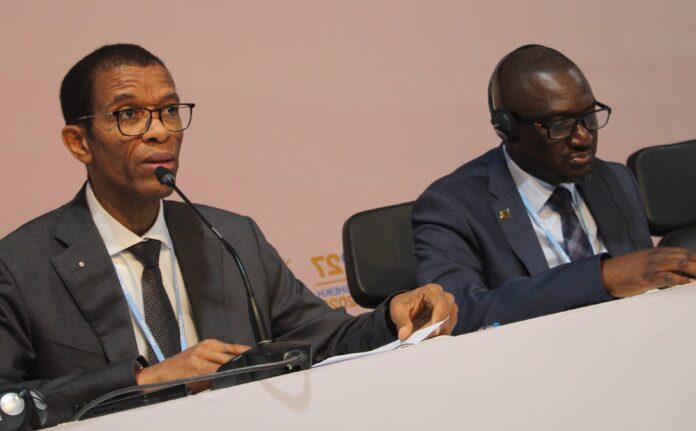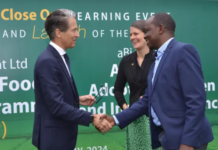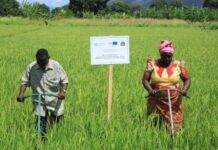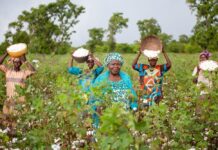Africa needs an estimated US$86.5 billion for climate change adaptation by 2030 as part of the continent’s special needs and circumstances needed to patch up the myriad loss and damage dwarfing the continent’s economic growth, a United Nations report shows.
According to the African Group of Negotiators (AGN), representing the continent during the ongoing COP 27, the US$86.5 billion cost estimates fall under the Sixth Assessment Report (AR6) of the United Nations (UN) Intergovernmental Panel on Climate Change (IPCC).
This is a sixth in a series of reports which assess scientific, technical, and socio-economic information concerning climate change.
The AGN of which Zambia is chairing during the ongoing COP 27 in Egypt, notes that the global share of the adaptation costs averages US$127 billion needed by developing countries, despite the continent’s contribution of a paltry 4%.
The continent is currently seeking a prompt resolution of its special needs and circumstances that has affected its climatic conditions which have dwarfed growth of most countries affected in most growth sectors including agriculture, affecting food output.
A joint statement by Alioune Ndoye, Minister of Environment, Sustainable Development and Ecological Transition of Senegal and President of the African Ministerial Conference on the Environment (AMCEN) and Zambia’s Minister of Green Economy and Environment and, Chair of the African Group of Negotiators and seen by FRA reaffirm the support to the climate resolution process.
AGN in its rallying cry seek implementation on deliverables on the needs and circumstances which severely afflict the continent, currently hosting the event, the third conference since the conference was initiated 30 years ago
The negotiators remain optimistic that the failed deliverables during Glasgow’s COP 26 would be actualized during the Sharma Sheik and help overcome the climate crisis. It is envisaged the COP 27 would result in tangible outcomes, reflecting ‘people’s aspirations, including Africa’s special needs and special circumstances’
Citing the findings under Intergovernmental Panel on Climate Change (IPCC) Sixth Assessment Report (AR6) Africa is feared to be impacted more than any other continent, despite its minute emission contributions to the world’s total emissions.
More adaption is needed before 2030 but resources are needed to reduce the continent’s vulnerability as adduced by the scientific findings that show its dire situation.
“Africa is a continent plagued by complex overlapping challenges, and many generations of Africans have been left behind and suffer consequences of actions not of their own making” the statement says.
The systemic problems facing Africa, AGN note, require dedicated and targeted interventions. This will also unleash our continent’s potential to contribute to achieving the 1.5c world, concerted efforts by all is needed as hunger and damage loom.
In a continent that is already food insecure, Africa has suffered a 34% decline in food production and loss & damage to agricultural productivity. (IPCC AR6).
Other concerns that need redress at the height of the COP 27 is to redress Climate finance, adaptation, mitigation. loss and damage and means of implementation.
On adaptation, intensive technical work undertaken throughout the year and until recently on the Global Goal on Adaptation there is a need for all Parties to jointly work constructively for reaching an agreement on a framework to enable achieving and assessing progress towards the Global Goal on Adaptation which is more urgent than before.
The AGN envisioned that adaptation will be treated with the urgency needed as it underpins Africa’s survival for Africa. The outcome of the COP27 is anticipated to deliver on scaling up adaptation action and support including GGA.
“COP27 is our fighting chance to ensure that the multilateral process delivers on its promise of an adequate adaptation response in the context of the 1.5 temperature goal”
IPCC has earlier raised the alarm on the narrowing window for action on adaptation with widening adaptation implementation and finance gaps.
Any slight delay to act in adaptation action at scale entails another set-back to Africa’s hard-won development gains and another stumbling block in Africa’s path to eradicate poverty, achieve food security and sustainable development
AGN notes Africa’s extreme exposure to diverse Loss and Damage which has manifested mostly in various sectors and are further associated with extreme and slow events over different time scales;
AGN envisions a durable resolution on an effective and well-resourced Santiago Network for Loss and damage to catalyze technical assistance to developing countries and establish a loss and damage finance facility with a clear roadmap for its full operationalization;
Provision of finance remains critical for the implementation, a reiteration on developed country Parties to engage constructively for a meaningful finance package. This should include delivery on the much promised USD 100 billion.
Africa has and continues to suffer the brunt of the adverse effects of climate change and have not received the required multilateral support to face the climate challenge.
AGN recommends that African countries have access to scaled-up levels of new and additional and predictable grant and concessional finance.
The funding could be deployed effectively to create enabling environments by beginning to buy down risks and create new asset classes for clean investments.
This would allow for more significant mobilization and leveraging of public and private finance and enhance access to the elusive and unseen trillions of dollars.
The delayed disbursement of the US$100 billion per year goal by 2020 from developed to developing countries remains unfilled and should be disbursed without further delay for building trust and faith in the multilateral process of addressing climate change.
“We urge developed countries to deliver on their commitment to meet the goal and ensure the progression of efforts in the on-going mobilization of climate finance.” The statement notes.
On Mitigation, AGN and other interest groups hope for sustained engagement. There is a need for those in technical work, tasked to redress concerns and effectively design a dynamicmitigation work programme to culminate in concrete decisions on scaling up both mitigation ambition and support for just transitions.
Other expectations by AGN include the mitigation work programme accelerating the implementation of NDCs. Developed countries should take the lead in implementing their targets while providing enhanced support to developing countries.
COP27 is expected to design an effective and dynamic work programme and result in concrete decisions on scaling up both mitigation ambition and support for just transitions.









